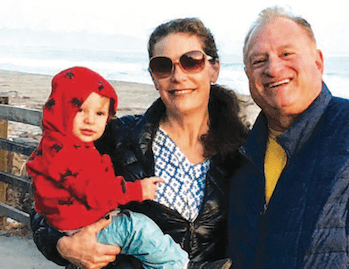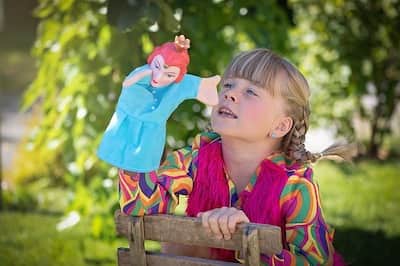
“The Talk” with your Teen: Career Pathways March 2019
By Mary Gaukel Forster
This month’s edition of Growing Up in Santa Cruz focuses on teens. Last month I wrote about the question, “What do you want to be when you grow up” and how easily a preschooler might answer, “a firefighter.” Often by the teen years, the students I worked with answered that question with “I don’t know.” Self-consciousness, maturing bodies, peer influence, increased levels of academic challenge, and increased structured time, begin to limit a teen’s

self-awareness of career possibilities, career pathways. When confronted with “I don’t know” many well meaning adults, family members, teachers, counselors, family friends ask “well, what is your passion?” Having a passion, knowing your passion, is developed over time and experience, not always known or understood by teens. Declaring a passion can often feel too personal or private to a teen. How can a parent, an adult, help a teen begin to explore possible careers? Where to begin?
A good place to start is by helping your teen recognize the difference between strengths and interests. Many counselors and some parents will direct their teen to a paper or online assessment to help them generate a list. This can be difficult for teens during a time when they might lack confidence and/or can be self critical. Recognition of strengths and interests should be the place to start before any formal assessments are taken. Casual conversations with teens about your own strengths and interests, maybe ones you discovered as a teen, or those of a favorite relative or family friend, can help a teen develop an awareness that strengths can involve skills, abilities, qualities and personal characteristics and how strengths differ from interests.
A strength can be an ability, an innate talent, or a skill, a developed talent, such as the following: creativity, enthusiasm, leadership, listening, math, open-mindedness, organization, originality, drawing, problem solving, reading, social studies, sports, writing. Interests are something that excite curiosity or attention. A teen can be interested in music without having any musical ability or skill. They may be interested in or fascinated by space flight, fashion design, video game design, animation, and an unlimited number of other possibilities.
I liked to, and still do, share stories of strengths, skills, and excitement that I observed in my children before they became self-conscious, peer-conscious teens. I shared stories of their activities, their dreams, their interests. My oldest son would laugh as I reminded him of the time he was creative when making a space suit for himself out of aluminum foil. This later showed up when he earned his pilot’s license at 18. For my middle son, it was his ability to explore science, how bats communicate by echolocation, which led us to a talk by the local Santa Cruz “Bat Mama,” complete with live bats. I could see this interest blossom later as he became a backcountry guide. For my daughter, it was the story of how she evidenced her interest in education when she asked for a classroom for Christmas: her own child-sized teacher desk, white board, bulletin board, and calendar. Now she is a behavior analyst working with children and their families.
What stories, examples, can you share that might bring a smile, a laugh, an awareness to your teen? Look for opportunities to share these stories and reflections. It will be less likely to feel like “lectures or lessons” to your teen and more like clues to self-discovery.
Mary Gaukel Forster is currently the executive director for the non-profit organization, Your Future Is Our Business, focusing on fulfilling the mission of providing all youth in our county with career explorations. She retired from a career in education, teaching pre-school, elementary school, middle school and high school, then becoming a high school principal. Mary has three grown children, is married to retired educator Les Forster. They live in Capitola and are happily acting as career exploration guides for their 4 granchildren. In her free time Mary runs half-marathons. Reach Mary at [email protected]


You May Also Like

Trying College on for Size
March 1, 2019
Letter from the Editors March 2019
March 1, 2019

